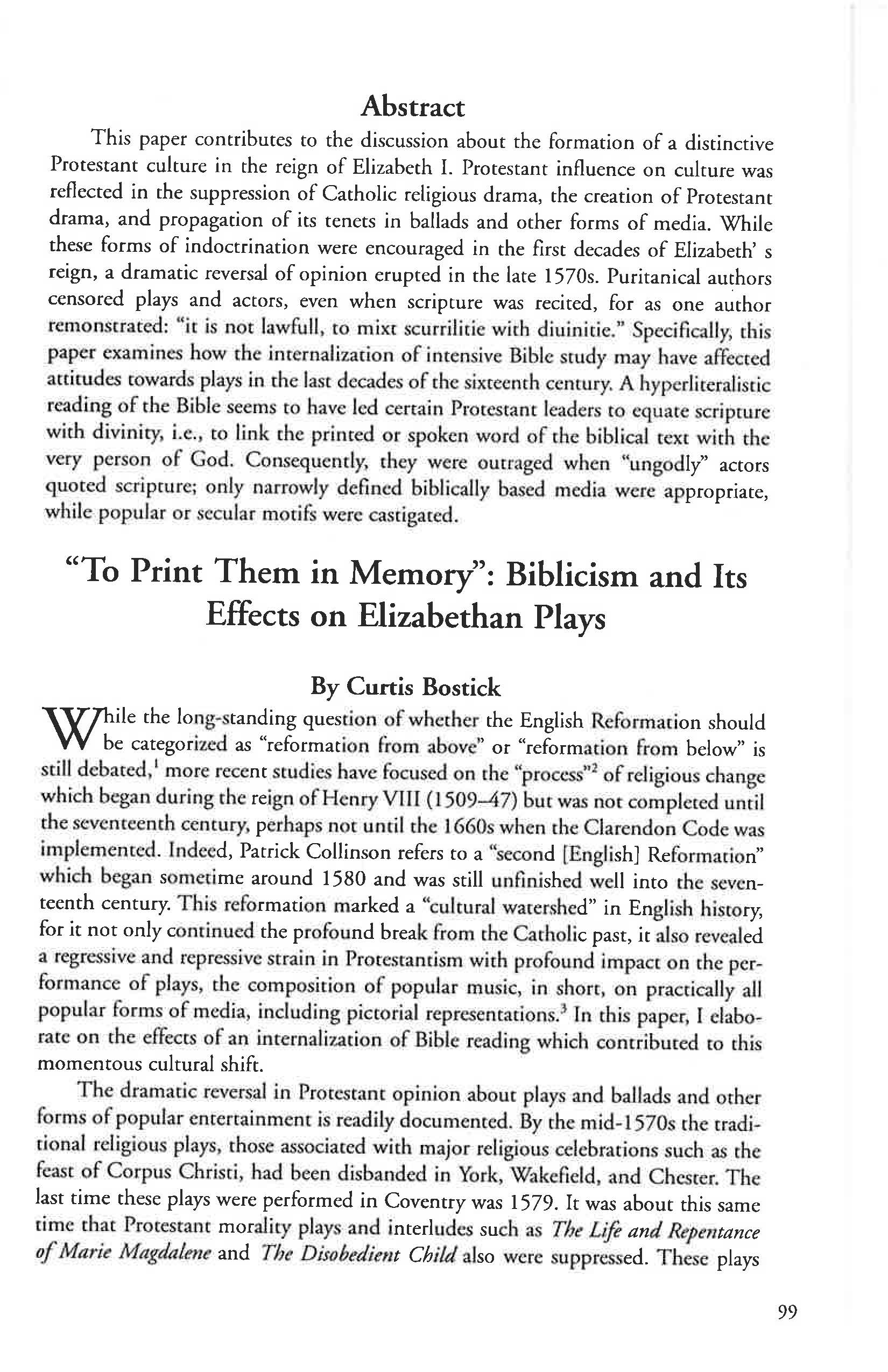"To Print Them in Memory": Biblicism and Its Effects on Elizabethan Plays
Main Article Content
Abstract
This paper contributes to the discussion about the formation of a distinctive Protestant culture in the reign of Elizabeth I. Protestant influence on culture was reflected in the suppression of Catholic religious drama, the creation of Protestant drama, and propagation of its tenets in ballads and other forms of media. While these forms of indoctrination were encouraged in the first decades of Elizabeth' s reign, a dramatic reversal of opinion erupted in the late 1570s. Puritanical authors censored plays and actors, even when scripture was recited, for as one author demonstrated: "it is not lawful, to mixt scurrilitie with diuinitie." Specifically, this paper examines how the internalization of intensive Bible study may have affected attitudes towards plays in the last decades of the sixteenth century, A hyperliteralistic reading of the Bible seems to have led certain Protestant leader to equate scripture with divinity, i.e., to link the printed or spoken word of the biblical text with the very person of God. Consequently, they were outraged when "ungodly" actors quoted scripture; only narrowly defined biblically based media were appropriate, while popular or secular motifs were castigated.
Article Details
Section
Articles
